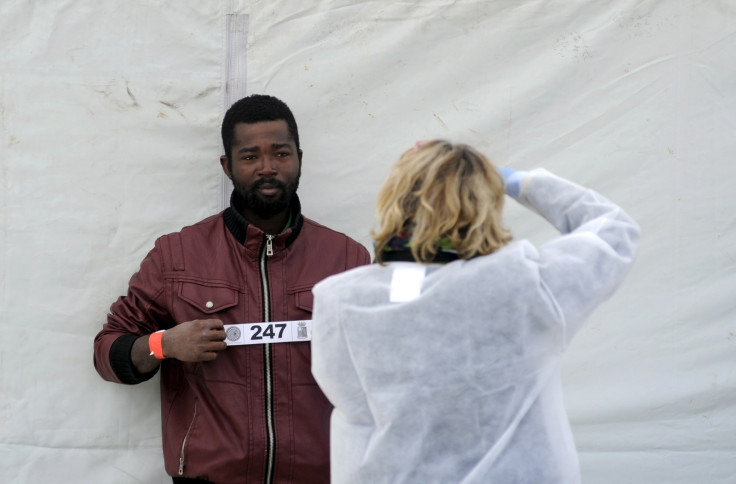Libya migrants: Italy coastguard boats with 893 refugees head to 'overcrowded' Sicily centres

Italian coastguards have rescued 893 migrants from boats in distress off the Libyan coast and are bringing them to two Sicilian coastal towns that are already struggling with the influx of refugees from Libya.
"Two rescue boats plucked 301 and 592 migrants from rubber boats 50 miles off Libya," a spokesman for Italy's coastguard told IBTimes UK. "They are taking the refugees to the Sicily towns of Pozzallo and Augusta."
The latest wave of refugees set out after as many as 400 migrants fleeing Libya are feared to have drowned when their boat capsized 24 hours after departing the North African coast. Italy's coastguard has rescued 144 people but several hundred others are feared dead given the size of the vessel.
An Eritrean activist and an aid organisation told IBTimes UK that three more boats containing a total of 1,150 Eritrean and Ethiopian migrants were headed to Italy after sailing from the Libyan coast on Tuesday night (14 April).
Italy coastguards said they have "continuously" rescued up to 10,000 people since last Friday.
The chief cabinet of Ragusa prefecture, where the small coastal town of Pozzallo is located, confirmed to IBTimes UK that they are expecting a mass arrival of migrants soon. "We've had a frequent movement of people coming and going," he said. "The migrants' centre is constantly overcrowded."
His concerns are echoed by Nello Lo Monaco, responsible for the Civil Protection agency in the Ragusa province. After the refugees are docked to Pozzallo, the Civil Protection is tasked with organising first aid at the port along with police and the health services.
"We manage teams of volunteers who set up tents and first aid for the migrants, and distribute water, biscuits and juices for the children," he told IBTimes UK. Then, the migrants are sent to migrants' centres, where police are responsible for carrying out security checks.
If the centre is full, the refugees are sorted to other refugee centres or taken to northern Italy on charter flights.
The latest tragedy to hit desperate migrants willing to risk their lives in a perilous voyage at sea has prompted calls for EU leaders to restore search-and-rescue operations in the Mediterranean.
Italy's Mare Nostrum programme, which saved 150,000 lives in 2014, was ended in November due to lack of funds. Considered unsustainable, it was replaced with a "border protection" operation named Triton and managed by Frontex, the European border agency.
Frontex's annual budget has declined from €94m to €89m (£67.6m to £64m), which is paltry compared to the €10m spent monthly by Italy for Mare Nostrum.
© Copyright IBTimes 2025. All rights reserved.






















